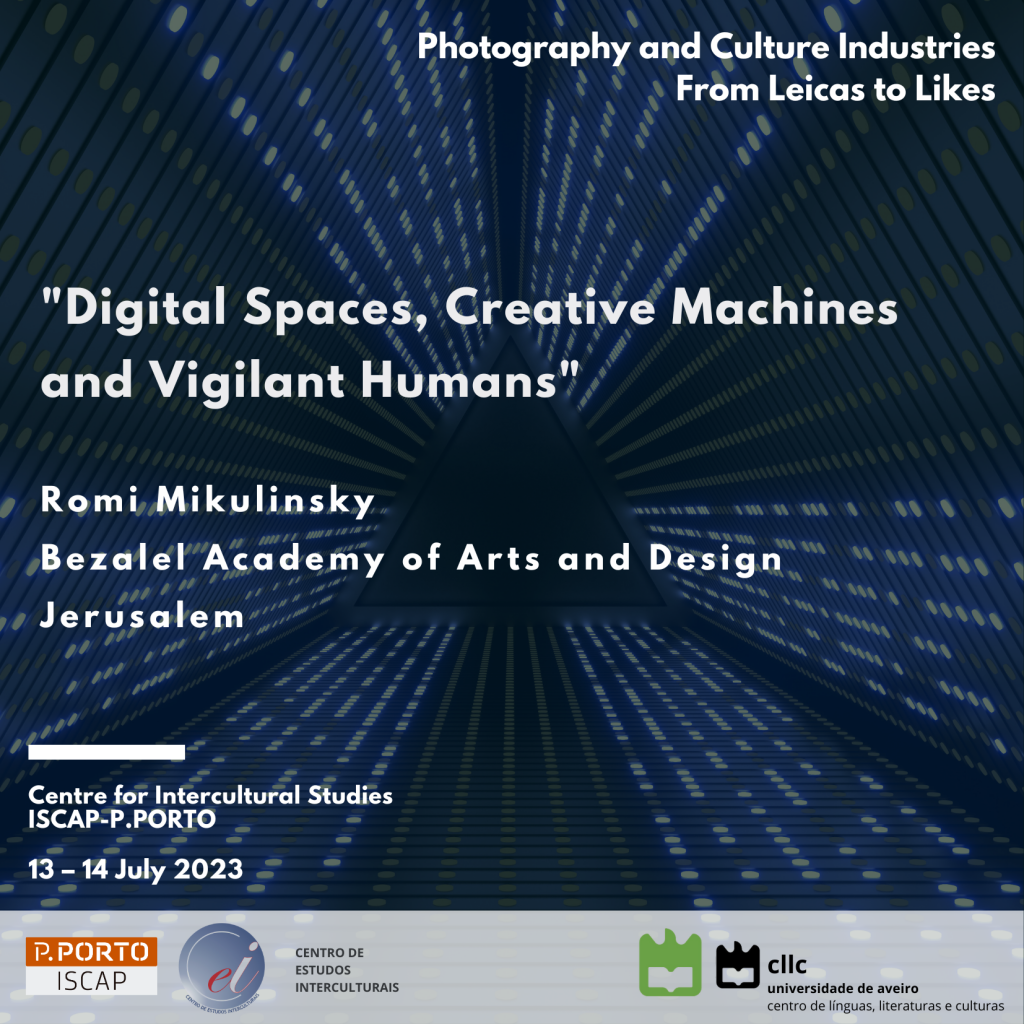The Centre for Intercultural Studies is pleased to announce the communication “Digital Spaces, Creative Machines and Vigilant Humans” by Romi Mikulinsky to be presented at the Conference Photography and Culture Industries: From Leikas to Likes.

This lecture will address the tectonic shift that emerging technologies advance in and for the creative industries (technologies like the generative AI, Metaverse and Web3.0)
I shall begin with a short overview of dominant trends and recent technological breakthroughs that have been popularized by artists and creatives. This will be followed by a series of examples from image-centered arts, fashion and architecture. I shall then present some of the dilemmas, questions and promises that virtual worlds and digital interactions can offer to the creative industries.
Drawing on notions stemming from counter-culture ideology and digital utopianism – and knowing all we now know today – I will try to outline what the creative class can be optimistic about? How can creativity and co-creation be remodeled and reconfigured given the new techno-social circumstances and platforms’ affordances?
Romi Mikulinsky is the head of the Master of Design (M.Des) program in Industrial Design and a senior lecturer at the Bezalel Academy of Arts and Design in Jerusalem. Her dissertation at the University of Toronto’s English dept. was dedicated to photography, memory, and trauma in literature and film.
Dr. Mikulinsky researches and lectures about digital and counter-culture, algorithmic art, as well as design-led innovation. Since 2018 she is leading the collaboration with the Design Lab (DLX) at the University of Tokyo and since 2019 spearheads Bezalel’s smart mobility collaboration with UTokyo Labs. She has over 20 years of experience in Israeli and International industry: she has worked with various start-up companies and media websites, corporations and municipalities (Jerusalem, Tel Aviv, Haifa, Holon) on implementing technological innovation across the organization and has international experience in leading design and innovation workshops (Australia, Japan, and in several countries across Europe). She served as the Director of The Shpilman Institute for Photography and worked with various art museums in Israel.

